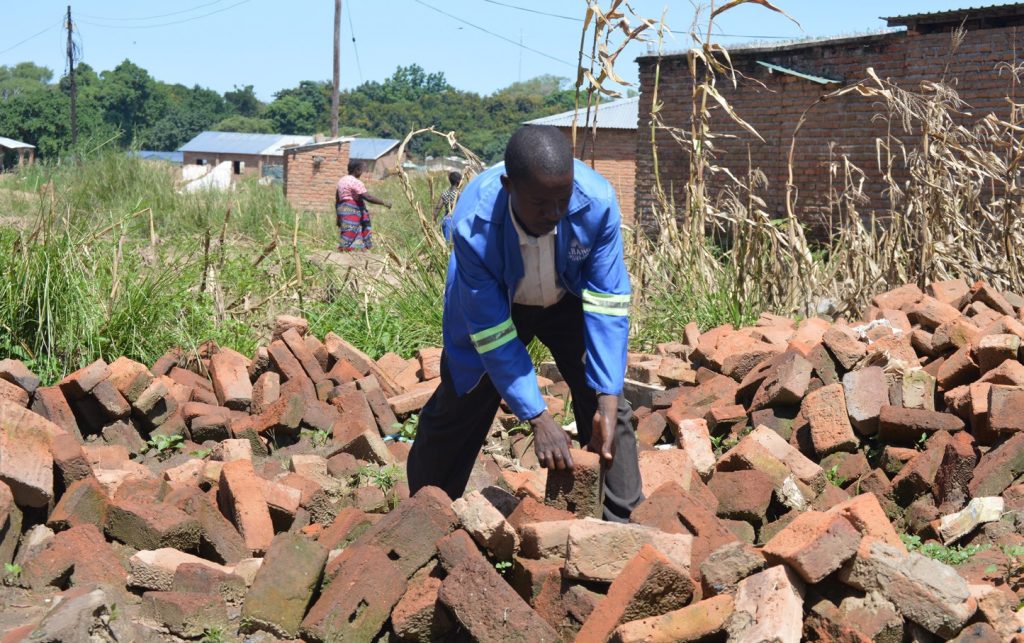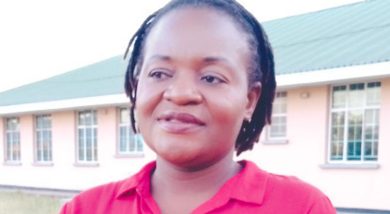Desperate survivors scavenge debris
Estele Phiri pulls out pieces of rusty iron sheets from the remains of her flattened house in Gilevulo, a deserted settlement in Dwangwa, Nkhotakota District.
The frail 60-year-old’s hopes of extracting some roofing materials in readiness of the rebuilding exercise, are fast fading.

As it turns out, the iron sheets are torn beyond saving.
“Nzovuta [it’s heart-breaking. Ndiye kumangansoko ungayambire pati [how do you start rebuilding?],”she said.
Phiri, living at Dwangwa Anglican Church Camp for internally displaced people (IDP), is on her rare visits to the hub of the floods that placed the lakeshore district under severe torment.
Like thousands of others, she lost all; house, food and clothes.

The disaster, which affected 16 415 people, killed six and displaced 10 529 who are living in evacuation camps.
They include 1 638 under-five children, 287 pregnant women, 305 lactating mothers, 46 people with disabilities and 82 elderly persons.
Phiri says her desperation to return home is triggered by government’s drive to close evacuation camps.
The Department of Disaster Management Affairs (Dodma) said in a press statement that it wants to decommission camps hosting about 10 000 displaced people in Nkhotakota and Karonga.
The other reason for Phiri’s desperation to return home is that camp life is not conducive to her.
“I would want my life to return to normalcy as a family, feeding ourselves,” says the mother of four who appeals for support to rebuild her house and life.
Just nearby lies mountains of debris from 11 houses that belonged to businessperson Raphael Banda.
In one night, the 42-year-old slipped from a man with hope to having none.
“I can’t piece my life together right now. I have become a beggar overnight. And it is a painful experience,” says Banda who deals in old car battery scraps.
On that fateful day, he had stocked 50 batteries valued at K500 000. They were washed away by floods after the Dwangwa River spewed just too much.
“I also lent out 10 of the houses which earned me around K300 000 a month. I used my earnings to send my children to private schools. Today, they have stopped going to school,” he said.
Banda is asking the National Economic Empowerment Fund Limited to give loans to business-minded victims.
“I need to rebuild my life and the house. If I can get a loan, it could help me recover,” he said.
Pressure is also mounting on the campers to return to their homes.
While those whose houses were merely filled with water have returned, others are staying with their families.
Ngala Camp vice-chairperson Emily Nthala in an interview says pressuring them to return is being cold-hearted.
“Most of us can’t rebuild now. Our place is still muddy and prone to floods. What they are asking us is to go there and die,” she said.
Anglican Church Camp resident Joyce Maxwell said circumstances are forcing them to remain in camps.
“I don’t even feel comfortable being here, but I don’t have any option as I don’t have any relatives here. If we can get support to rebuild our houses, it would be helpful,” she said.
Maxwell says she used to do pieceworks at Dwangwa Smallholder Cane Growers Association.
She believes that after not availing herself for a month, that opportunity is gone.
Hunger in camps
It is Tuesday, 1.35 pm at Anglican Church Camp. However, there is no sign of fire or smoke at the designated cooking site.
“We have flour, but there is no relish,” says Ida Mbewe, a nursing mother.
As she was locked in an interview with Nation on Sunday, her child was busy swapping her tiny lips between breasts.
It was obvious the toddler was not getting what it wanted.
“I took my last meal yesterday so she is not getting enough milk,” Mbewe said when asked about the baby’s restlessness.
While Dodma in its press release on the status of disasters and response operations said it has been distributing food, the picture on the ground seems totally different.
“In collaboration with the World Food Programme, the department has distributed maize/maize flour, beans, cooking oil and corn-soy blend as part of the return package,” reads part of the statement dated April 3 2024.
However, leaders at the three camps we consulted said food is not enough such that they are eating one meal a day.
“Let me clarify that we are not just sitting idle and waiting for donations. Some are doing pieceworks while others are doing small-scale businesses to supplement what we are receiving,” said the Anglican Camp’s chairperson Emmanuel Chisale.
Since the onset of the rainy season in October last year, disasters; mainly stormy rains, floods, strong winds, and lightning, have affected approximately 73 345, according to Dodma.
So far, 17 deaths and 69 injuries have been recorded, it adds.
Currently, the department says it has reached out to 16 299 households or 100 per cent of the affected with food and non-food items, including maize, beans, blankets, pails and plastic sheets.
However, Dodma in its update said it has received fresh reports of flood disasters in Mzimba and Karonga districts and is making arrangements to provide relief assistance to the affected.





